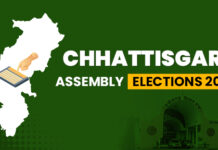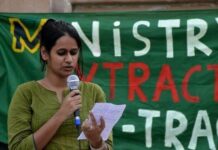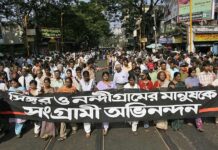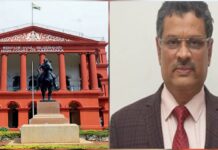On 19 December 2021, the results of the Chilean General Election was declared and a young Gabriel Boric emerged victorious. The Chamber of Deputies (Chile’s Lok Sabha) saw a move away from the Right-wing Chile Podemos Más Coalition. More seats went to new parties and the left-wing coalition Apruedo Dignidad, though no party coalition secured a majority. The Chilean legislature still has a strong but declining presence from right-wing parties, but newer younger left-wing politicians are rising.
Gabriel Boric: The face of Chile’s new left
Making international news is the victory of Gabriel Boric Font in the Presidential Race. Boric will be the youngest President Chile has ever had at age 35. Boric was a leading figure in the Chilean Winter student protests. He played an important role in establishing the Chilean Constitutional referendum, overthrowing the infamous Pinochet Constitution.
Boric won as part of the Apruedo Dignidad (Approve Dignity), a coalition of environmentalist feminist libertarian socialist parties. The Apruedo Dignidad’s strength in the Chamber of Deputies is still second to the Podemos Más, but Boric’s victory stands as historic as it marks a revival of socialism in the electoral politics of Chile after it was brutally assassinated by Augusto Pinochet. The Presidential win came following the largest voter turnout in Chilean history.
The Path to Boric’s win
Chile has been home to grassroots level organizing for centuries. The indigenous Mapuche people resisting the Chilean, to the counter-culture movements and the Mutual Aid revolutionaries of the late nineteenth century, to the Allende’s Parliamentary path to Socialism, pushed through the twentieth century. Chile is now known as the birthplace of Neoliberalism, when the military official, Augusto Pinochet overthrew the democratically elected leader, Allende, in an extremely violent coup. He mass slaughtered Allende’s supporters and began implementing policies based on the neoliberal Chicago school of economics. When his rule was reaching an end, he cemented the neoliberal parties through an extremely pro-market constitution.
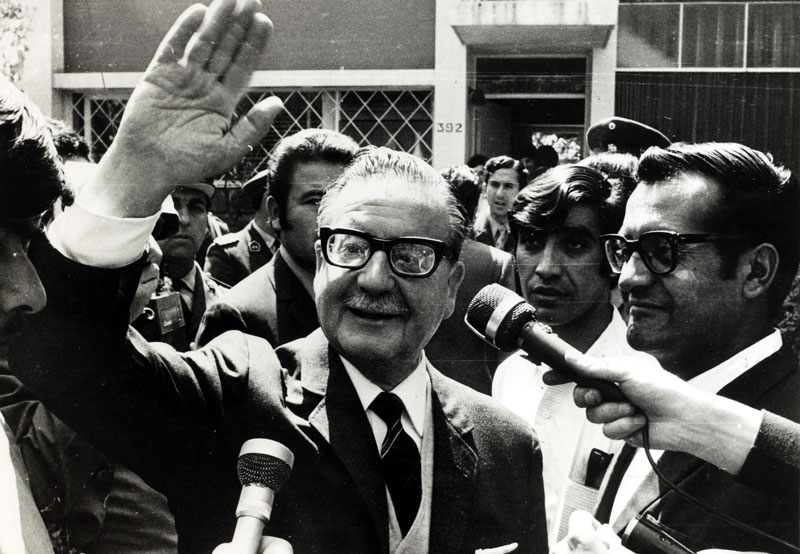
When Democracy was restored, most of the winners of elections were people who opposed Pinochet and its Constitution. However, the Constitution, with a very strong emphasis on guarding the rights of the rich, restricting welfare measures, and use of extremely punitive anti-terrorism measures, hit indigenous communities hard.
Stories of struggle still passed from generation to generation, and this inspired a new generation of activists starting in 2006 with the mass demonstration known as the Penguin Revolution. The new generation of revolutionaries came with new ideas relating to sexuality, women’s rights, environmentalism, education, mobilizing through social media, and direct decision making.
Boric’s background
Boric joined student politics, where he was part of a collective called the Izquierda Autónoma (Autonomist Left). Autonomism is a brand of Marxism that began in Europe. Autonomists are suspicious of bureaucracy, insist on promoting socialism from the local level, and have a wider definition of working-class than other Marxists. Their wider definition of working class includes all wage earners, homemakers, students and anyone else denied autonomy in a capitalist society. Many consider Autonomoism to be a more libertarian brand of Marxism calling for decentralization and direction coming from the grassroots struggle, rather than movements directing the struggle.
Autonomous thought blends and worked with many radical progressive voices, including anarchism, feminism, and radical environmentalism. This showed strongly in the various struggles they took part in. The struggles encouraged people to take Direct Action, mobilizing on various issues.

Boric took part in student politics and in protests for better education and antimilitarism. He worked with other like-minded people and ran for student offices to help foster change. After graduating he ran for parliament in 2013 from the Magallanes Region as an independent. In the following years, he formed a coalition of similarly minded Libertarian politicians to form the Broad Front. Within the Broad Front, Boric led Social Convergence, an Autonomist faction.
Also Read: ¡Evade!: How Chile’s student movement led the end of Neo-liberal tyranny
Broad Front was united by five major principles:
To promote an inclusive country
To move away from neoliberalism towards socialism
To create alternatives to centre-left and centre-right parties
To create unity across diverse progressive forces and ensure their political independence from corporate power
To build participative democracy
Reforming the Constitution
In 2019, following the massive nationwide protests, Boric was one of the lead politicians in Parliament to negotiate a referendum by popular mandate. This led to the repeal of the Constitution set up by the neoliberal dictator Pinochet.
Following Broad Front’s participation in the Constitutional Plebiscite, hundreds of its members of the Boric’s Social Convergence quit the party insisting that the Plebiscite was taking away from grassroots movements to develop non-capitalist alternatives and strengthen the local socialist movements. Some felt that there was a mismatch between the more radical demands on the street for a bottom-up democracy of the people, and the creation of a committee by higher-ups in the organization to draft a new constitution. They felt that the Plebiscite was acting as a pressure valve against the energy being generated on the ground. They left without malice for Social Convergence, and in a statement saying that while they would continue the more radical struggle, they hope to meet again.
The Constitution is being drafted by the Constitutional Convention, which was appointed by a national election. The Convention is still drafting a new Constitution and is expected to submit a draft by April 2022 to be ratified by a National Plebiscite.
Also Read: Chile’s Constitution and the Independent voice
Following his win, Boric had promised to work with the runner up in the Presidential race, Daniel Jadue from the Communist Party of Chile. This has been hailed across the world as a new leftward shift in Chilean politics. Boric has been reported saying that neoliberalism was born in Chile and it would die in Chile.
Boric will be sworn in as President in March next year. His rise to Presidency is as historic as that of Salvador Allende, who was the last leftist to lead the Chilean state. Allende came to power after decades of struggle and repressive governments and was brutally exterminated by Pinochet’s coup, ushering decades of neoliberalism in Chile. As the critics within his movement made clear, there is no substitute for working to create socialism on the ground. Even the most progressive leader can only ride on demands from the people.


















